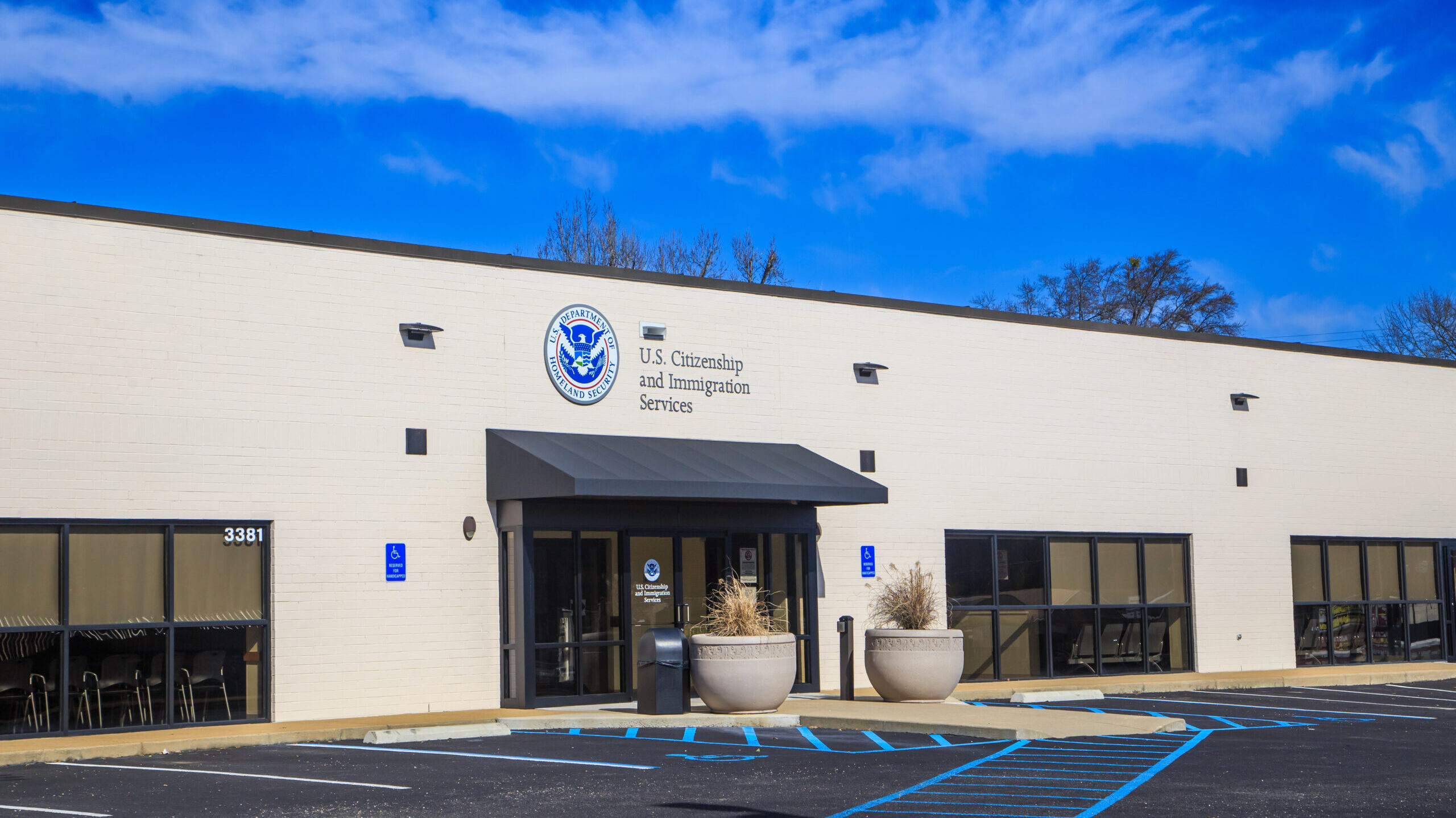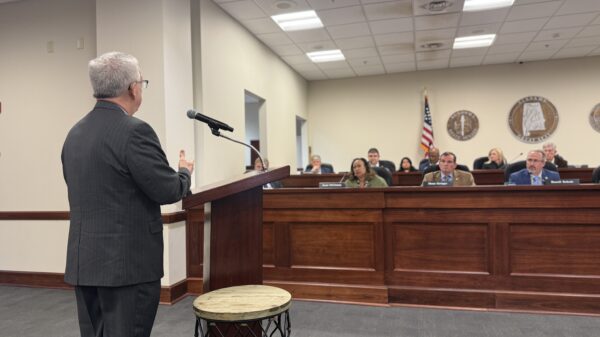An immigration enforcement bill will go before the House soon, Senate Bill 53. The legislation is drawing alarm from civil rights advocates, legal experts and immigrant families who warn it could criminalize ordinary acts of care and hospitality while empowering law enforcement to racially profile drivers.
At the heart of the concern surrounding SB53, sponsored by Sen. Wes Kitchens, R-Arab, is Section 13A-13-11 of the proposed law, which makes it a Class C felony for anyone who “knowingly transports, moves, or attempts to transport or move an alien… in furtherance of the unlawful presence of the alien in the United States” across Alabama state lines. Allison Hamilton, executive director at the Alabama Coalition for Immigrant Justice, says this language goes far beyond federal immigration law.
“Alabama is essentially trying to create its own new definition of human trafficking,” said Hamilton. “Federal law already addresses human trafficking and smuggling, but this bill introduces a new criminal offense based simply on knowingly transporting someone across a state line. That’s not about trafficking, that’s about controlling movement and punishing association.”
The bill does carve out exemptions for certain types of transport “for noncommercial, religious, or charitable purposes,” and by “health care providers transporting patients for medical care.” But Hamilton says these exceptions are too vague to offer meaningful protection.
“Who defines what counts as a charitable purpose? Would it include picking up a child from a church group or driving a friend to a food pantry? What about informal acts of kindness that don’t involve a formal nonprofit?” asked Hamilton.
The religious and charitable exception’s ambiguous language has raised concerns about how it would be interpreted by local law enforcement, especially in communities where relationships between immigrant residents and police are already fraught.
Another exemption allows transportation by health care providers, but it explicitly covers “health care providers transporting patients.” This narrow framing does not include family members and could mean that undocumented relatives could still face felony charges simply for driving a loved one to a medical appointment.
“Let’s say your uncle needs to get to chemo across the state line,” said Hamilton. “If you drive him, and either of you is undocumented, you could both face a felony under this bill. It’s just not practical or humane.”
Advocates also pointed to an aspect of the bill, which says that arrests can be made when “reasonable suspicion exists that the individual is an alien who is unlawfully present in the United States.” This phrasing, they warn, is likely to lead to racial profiling.
“What does ‘reasonable suspicion’ look like in practice? Are officers expected to determine someone’s immigration status based on appearance or accent? Because that’s exactly the kind of profiling this invites,” said Hamilton. “We’ve seen it before. Immigration law is incredibly complex, and most law enforcement officers don’t have the training to make these kinds of determinations correctly. That’s why laws like this often end up sweeping up innocent people.”
The bill includes an exemption for transporting someone “to or from a location for governmental purposes.”
“Alabama doesn’t have any immigration courts, so people have to travel to Georgia or Louisiana for hearings. But lawyers don’t drive clients to court, that’s not a thing. So what does this exemption really mean?” asked Hamilton.
In addition to logistical and legal concerns, critics say SB53 would isolate immigrant families and send a hostile message about who belongs in Alabama.
“This bill says immigrants aren’t welcome in our state,” said Hamilton. “It tells people they can’t take care of their family, go to birthday parties, help each other get to the doctor. It criminalizes community.”
Ultimately, opponents say SB53 could lead to family separations, increased racial profiling and dangerous barriers to healthcare and legal services, all under the guise of reinforcing immigration law.
“This bill doesn’t just target traffickers. It targets people who love and care for each other,” said Hamilton. “That’s not who we want to be.”
















































